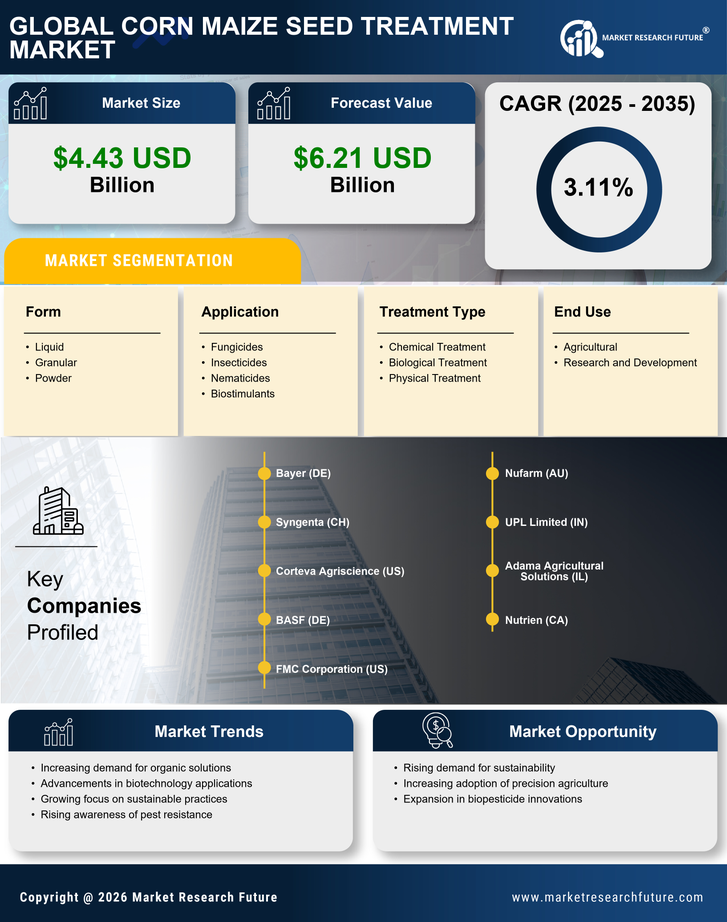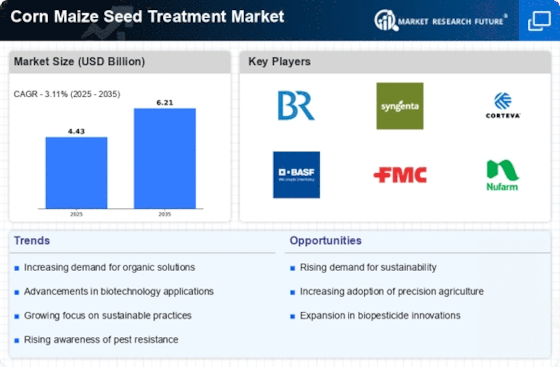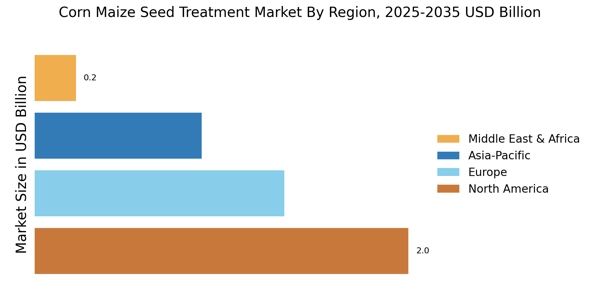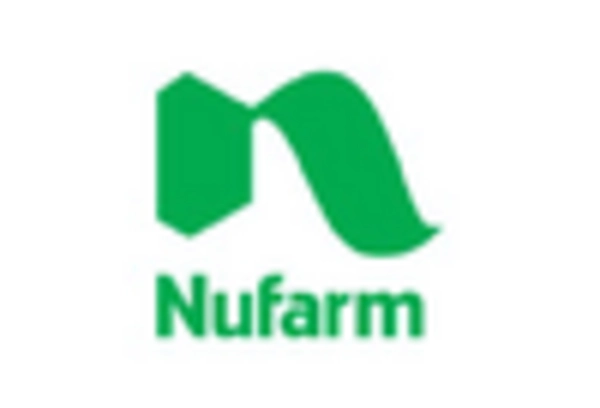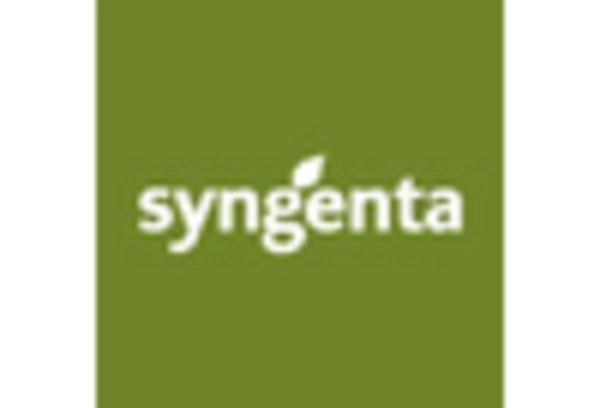Government Support and Subsidies
Government initiatives aimed at enhancing agricultural productivity are playing a pivotal role in the Corn Maize Seed Treatment Market. Many governments are providing subsidies and financial support to farmers for adopting advanced seed treatment technologies. These initiatives are designed to encourage the use of high-quality seeds and effective treatment methods, thereby improving crop yields. In several regions, policies promoting food security and sustainable farming practices are further bolstering the market. As a result, the Corn Maize Seed Treatment Market is likely to benefit from increased investment and support, facilitating the adoption of innovative seed treatment solutions.
Rising Demand for High-Yield Crops
The increasing global population necessitates a rise in food production, leading to a heightened demand for high-yield crops. This trend is particularly evident in the Corn Maize Seed Treatment Market, where farmers are seeking ways to enhance productivity. The adoption of seed treatments that improve germination rates and protect against pests and diseases is becoming more prevalent. According to recent data, the market for maize seed treatment is projected to grow at a compound annual growth rate of approximately 8% over the next few years. This growth is driven by the need for efficient agricultural practices that can meet the food demands of a growing population, thereby positioning the Corn Maize Seed Treatment Market as a critical component in modern agriculture.
Growing Awareness of Crop Protection
The awareness surrounding crop protection and its importance in ensuring food security is rising among farmers and agricultural stakeholders. This trend is significantly impacting the Corn Maize Seed Treatment Market, as more farmers recognize the value of seed treatments in safeguarding their crops from pests and diseases. Educational programs and outreach initiatives are helping to disseminate information about the benefits of seed treatments, leading to increased adoption rates. As farmers become more informed about the potential yield improvements and cost savings associated with effective seed treatments, the demand for these products is expected to grow, further driving the expansion of the Corn Maize Seed Treatment Market.
Increased Focus on Sustainable Agriculture
Sustainability is becoming a central theme in agriculture, influencing the Corn Maize Seed Treatment Market. Farmers are increasingly adopting practices that minimize environmental impact while maximizing yield. This shift is reflected in the growing preference for eco-friendly seed treatments that reduce chemical usage. Regulatory bodies are also promoting sustainable practices, which is likely to drive demand for organic and biopesticide-based seed treatments. The market for sustainable seed treatments is projected to expand as consumers demand more environmentally responsible food production methods. Consequently, the Corn Maize Seed Treatment Market is poised for growth as it aligns with the broader trend towards sustainability in agriculture.
Advancements in Seed Treatment Technologies
Technological innovations in seed treatment are transforming the Corn Maize Seed Treatment Market. New formulations and application techniques are being developed to enhance the efficacy of seed treatments. For instance, the introduction of biological seed treatments, which utilize natural organisms to protect seeds, is gaining traction. These advancements not only improve seed health but also reduce the reliance on chemical pesticides, aligning with sustainable agricultural practices. The market is witnessing a shift towards integrated pest management strategies, which combine various treatment methods for optimal results. As a result, the Corn Maize Seed Treatment Market is expected to experience significant growth, with investments in research and development driving further innovations.
